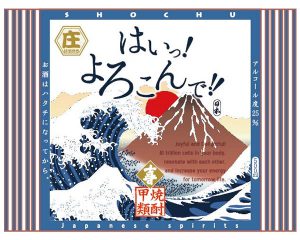What is "nikujaga"? Japan's typical mama's dish
Nikujaga Born from Heihachiro Togo’s Half-Remembered Recipe History of Nikujaga Together with miso soup, Nikujaga (meat and potatoes) is always counted among the tastes of Mom's home cooking. Representative of home cooking, Nikujaga is a national dish that is included nearly always in the menus of folksy restaurants, bars, and company cafeterias. With its slightly […]
Different types of workers in Japan
Differences Between "Se-ishain" and "Haken-shain" By an Australian living in Tokyo My husband recently met with a former colleague and a friend from his university. The colleague was a man who was recently released by the company because he was a “haken-shain” (short-term contract worker). His friend works for the government’s public employment office. My […]
“HoRenSo” for non-Japanese employees (3) Honest Reporting
“HoRenSo” for non-Japanese employees (3) Honest Reporting Q: I learned about reporting, contacting and consulting during the initial training. I was taught "the conclusion should come first," "use of 5W1H (why, where, when, who, what and how)," "always consult first and not to act independently." Among the teachings, the lecturer made an emphasis on "making an […]
If you have a different boss, what do you deal with them in Japan?
How to Deal with a Japanese Boss? By Patricia Pringle Recruited from a Competitor During the Company Expansion Joe McDonald is a vice president at a United States subsidiary of a large Japanese company. He has been with the company for three years. He was recruited from a major competitor, where he had worked for […]
What is yorokonde in Japanese?
yorokonde! (よろこんで!喜んで!) “Yorokonde” is an adverb meaning "delighted", so "delightedly" is a close word. But it is often used colloquially. If you ask me, I’ll be pleased to help you. “Pleased to help you” means “yorokonde tetsudaimasu.” You can reply by saying, “hai yorokonde.” It means “yes with pleasure.” Will you dance with me? Hai […]
"HoRenSo" for non-Japanese employees (2) Interim Report is Important
"HoRenSo" for non-Japanese employees (2) Interim Report is Important Which Is Important, a Final Report When the Work Is Completed or an Interim Report? Q: During a training period, I was taught that I start a task when instructed and I report to my boss after I have completed the task. However, when I started work, […]
"HoRenSo" for non-Japanese employees (1) What Is Important in Reporting, Contacting and Consultation Is the Awareness of Objective
"HoRenSo" for Non-Japanese Employees (1): the Awareness of Objective HORENSO is an acronym of three Japanese words: HOKOKU (Report), RENRAKU (Contact), and SODAN (Consult). It is an important practice for effective communication in every department. Japanese companies encourage their staff to practice HORENSO.HOKOKU is to report detailed progress and results of assigned job to relevant […]
Orientation for Job-seekers in Japan
Shukatsu (就活)Orientation for Job-seekers Members of recent years’ graduating class enjoyed a seller’s market for jobs. This year, too, they don’t have to encounter an "Ice Age," but “Warm Age.” Many corporations planning to hire new graduates hold mass orientation sessions. Students, who are sending out applications, form a long queue, which is sort of […]
Japanese prefer to express things indirectly
Japanese prefer to express things indirectly "This project will be a little difficult” Mary Smith worked for a large Japanese company in the United States. Knowing that her company was trying to find ways to cut costs, she thought of an idea for automating the record-keeping in her group. She researched various record-keeping systems, and […]
Socializing in Cyberspace in Japan
Socializing in Cyberspace By an Australian living in Tokyo In Japan, Internet relationships have a dubious image. There are frequent news reports of Internet romances that end up in murder. Many criminals publicize their crime on the Internet before committing them. Indeed, there are sites where people “socialize” by committing suicide together or take part […]












